Space
Sign up for our newsletter
We summarize the week's scientific breakthroughs every Thursday.
-
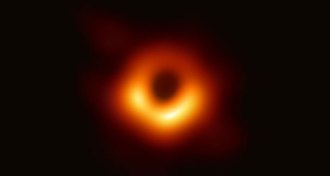 Astronomy
AstronomyThe first picture of a black hole opens a new era of astrophysics
Astronomers used a network of telescopes around the world to take a picture of the supermassive black hole in the galaxy M87.
By Lisa Grossman and Emily Conover -
 Science & Society
Science & SocietyThe delight of discovering an asteroid that spits
Editor in Chief Nancy Shute discusses recent news about the asteroid Bennu and Kuiper Belt–object Ultima Thule.
By Nancy Shute -
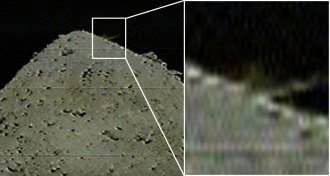 Planetary Science
Planetary ScienceHayabusa2 has blasted the surface of asteroid Ryugu to make a crater
Japan’s Hayabusa2 spacecraft shot a projectile at Ryugu. Next: collecting asteroid dust from the probable impact crater left behind.
-
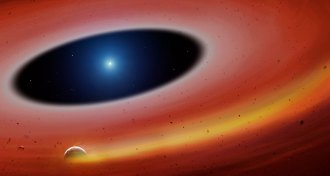 Astronomy
AstronomyThis planetary remnant somehow survived the death of its sun
A small, sturdy piece of planet survived the collapse of its sun and now orbits the dead star.
-
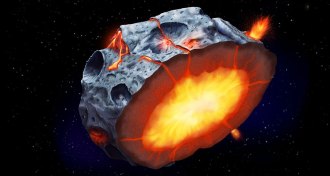 Planetary Science
Planetary ScienceMetal asteroids may have once had iron-spewing volcanoes
Two groups of scientists introduce the idea of “ferrovolcanism,” or iron volcanoes, that could have occurred on metal asteroids like Psyche.
-
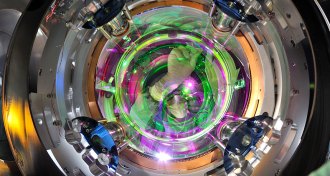 Physics
PhysicsThe LIGO and Virgo gravitational wave detectors are back on
Souped-up instruments could spot never-before-seen sources of gravitational waves.
-
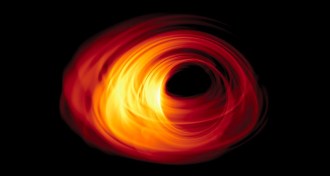 Astronomy
Astronomy4 things we’ll learn from the first closeup image of a black hole
Scientists are gearing up to release the first image of the black hole at the center of the galaxy. Here’s what they hope to find out.
-
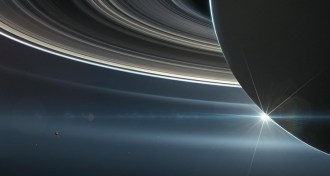 Planetary Science
Planetary ScienceSaturn’s rings paint some of its moons shades of blue and red
Moons located among Saturn’s inner rings are different colors depending on their distance from the planet, suggesting they’re picking up ring debris.
-
 Planetary Science
Planetary ScienceKuiper Belt dust may be in our atmosphere (and NASA labs) right now
Bits of space debris that collect in Earth’s atmosphere may come from as far as the cold, distant Kuiper Belt region beyond Neptune.
-
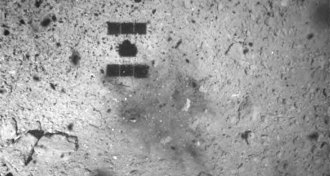 Planetary Science
Planetary ScienceRyugu is probably a chip off one of these two other asteroids
Japan’s Hayabusa2 team has narrowed down the asteroid Ryugu’s origins based on its color.
-
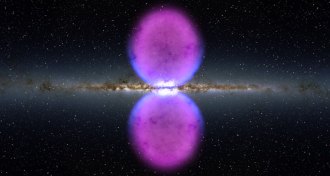 Astronomy
AstronomyX-ray ‘chimneys’ connect the Milky Way to mysterious gamma-ray bubbles
Two columns of X-rays that are hundreds of light-years long could explain the existence of giant bubbles of energetic light that sandwich the galaxy.
-
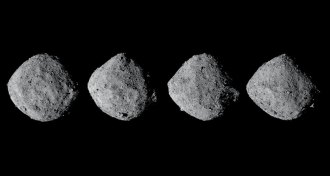 Planetary Science
Planetary ScienceSurprising astronomers, Bennu spits plumes of dust into space
Bennu spews dust from its rocky surface, which may be a new kind of asteroid activity.